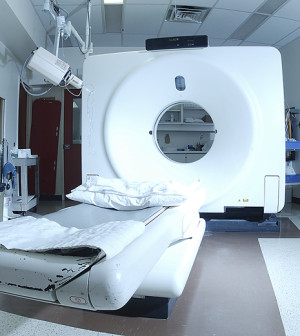- Big Health Care Disparities Persist Across the U.S., New Report Finds
- Teens Often Bullied Online About Their Weight: Study
- Work That Challenges Your Brain Helps You Stay Sharp With Age
- Urine Test Might Spot Head-and-Neck Cancers Early
- Many Seniors Are Overmedicated, But ChatGPT Might Prevent That
- Antipsychotics May Do Great Harm to People With Dementia: Report
- Two-Drug Combo Curbs Drinking for People Battling Severe Alcoholism
- Most Homeless Americans Are Battling Mental Illness
- FDA Recalls Heart Failure Devices Linked to Injuries and Deaths
- COVID Does Not Spur Asthma in Kids, Study Finds
Gains of ‘Brain Training’ for Elderly Seen 10 Years Later


Elderly people who participate in “brain training” classes to keep their minds sharp continue to see positive benefits 10 years after the training, according to a new study.
Even if they took only an initial set of classes aimed at improving their ability to solve problems and react quickly, participants showed that the training stuck with them a decade later, the researchers reported in the January issue of the Journal of the American Geriatrics Society.
Those who received “booster” sessions during the following 10 years displayed even better mental abilities, compared with people who received no brain lessons at all.
The lasting mental boost that can be achieved by taking brain training is a surprise, said study co-author Jonathan King, program director for cognitive aging at the U.S. National Institute on Aging, a co-sponsor of the study.
“When the study first started, people had some idea you could get a short-term effect,” King said. “I don’t think anyone anticipated you could get a five-year or a 10-year effect.”
There is a drawback, however. Problem-solving and quick-reaction training stuck with participants, but memory lessons did not, the researchers said.
“Memory training no longer has an effect after 10 years, but reasoning and speed-of-processing training still does,” King said. “We know that memory training is more difficult to get positive effects during aging.”
The study involved more than 2,800 people who were an average of 73 years old at the start of the study. They were divided into four groups. One group received no brain training, while the others were each trained in a specific mental ability during 10 sessions over five to six weeks:
- The memory group learned strategies for retaining word lists, sequences of items and details from stories.
- The reasoning group learned how to solve problems that follow patterns, such as filling in blanks from series of numbers or letters.
- The speed-of-processing group used a computer program that trained them to identify and locate visual information quickly, including looking up phone numbers and reacting to changes in traffic while driving.
These classes took place a decade ago, and researchers found immediate improvement in everyone who took the training — but only in the function they were trained on, King said.
Researchers recently revisited the participants to see if the training stayed with them, although less than half of the original group was available.
About 60 percent of the trained participants had either maintained or improved their initial ability to handle daily tasks such as using medications, cooking or managing finances. By comparison, only 50 percent of the untrained group had maintained or improved their ability to handle daily tasks.
Seniors who took reasoning or speed-of-processing training continued to show significant improvements over the untrained group 10 years later.
Memory training lasted up to five years following the initial sessions, but, after 10 years, the people who received the training performed no better than the untrained people.
The researchers also found that four-session booster training at 11 and 35 months after the initial training sessions produced additional and durable improvements in the reasoning and speed-of-processing groups.
The results support the idea that people can receive brain training that will keep them sharp as they age, King said.
But he noted that the participants took part in well-designed classes that focused on specific mental abilities. Solving the daily Sudoku might not have the same strong effect, and commercial brain-training programs like Lumosity are largely untested, he said.
“We don’t know very much about many of them,” King said of a wave of brain games and programs targeted at seniors. “No one has done any clinical trials on them that we know of. They may be good or bad, but we can’t say.”
The study seems to verify what is a common-sense notion, said Dr. Rachelle Doody, director of the Alzheimer’s Disease and Memory Disorders Center at the Baylor College of Medicine in Houston.
“People who remain cognitively active are advantaged as they age,” Doody said. “I could say the same about people who remain socially active and people who remain physically active.”
A well-rounded combination of all three — mental, social and physical activity — likely would help all seniors stay sharp as they age, she said.
“If you watch TV all day, every day but do a daily crossword puzzle, then you probably have too low a dose of the intervention,” Doody said.
Doody said she is a bit skeptical of the study because, due to the advanced age of the participants, fewer and fewer were available to be retested five and 10 years later.
More information
For more information on aging and memory loss, visit the U.S. National Institute on Aging.
Source: HealthDay
Copyright © 2024 HealthDay. All rights reserved.










